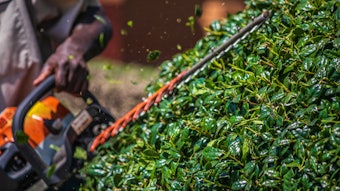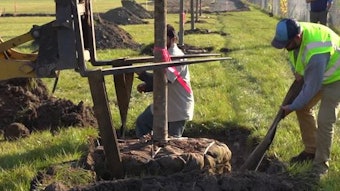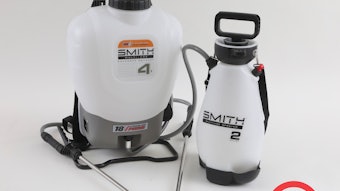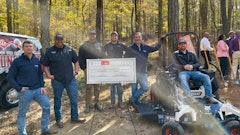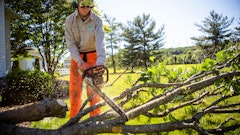While debate will always persist between organic and synthetic lawn care proponents, one thing is certain: The organic movement is gaining momentum, creating a much more competitive marketplace for lawn care. The question is: Will organic-based lawn care work well enough to satisfy the typical American's desire for a lush, green, weed-free lawn?
"Organic-based products should not be expected to do the same job as their chemical counterparts," says Doug Wood of Grassroots Environmental Education. "Organic lawn care is not a matter of changing products, it's a matter of changing mindsets." Wood is the producer of "Natural Turf Pro," a professional training course for landscapers and turf managers.
At the end of the day, what the customer really wants is healthy turf that is relatively weed-free. "That hasn't changed in 30 years," says Phil Catron of NaturaLawn of America. "But what is a customer willing to accept? Telling them that they'll be weed-free will get you in trouble. If you explain to them that their lawn is a living system and they'll get a few weeds, but the yard will look darn nice 80% of the time, most will be OK with that."
Dr. Kirk Hurto of TruGreen echoes that statement. "It's important to set reasonable expectations with customers so they understand the type of results to expect with an organic lawn care program."
Wood says that due to improved organic products, training and horticultural techniques, that expectation can be right on par with a chemically maintained lawn. "In places like Westchester County and Long Island, NY, customers are discovering that they can have a really nice-looking lawn without using chemical pesticides," Wood relates. "Organic landscapers don't try to kill pests, they try to grow grass. If the focus is on creating the right conditions to grow healthy, vigorous grass, you can succeed with an organic lawn care program."
Up in Canada, fueled by the recent Ontario pesticide ban and others that preceded it, Weed Man has been focusing on a number of alternatives to chemical lawn care. "We've been using nematodes for grub control for about the last five years," says Chris Lemcke, technical coordinator for Weed Man. "This year we've begun using an herbicide called Sarritor. And for insects such as chinch bugs, we're looking at things we can do to simply improve the health of the lawn. I think all lawn care contractors should be seriously looking at IPM (integrated pest management) these days."
Lemcke says organic-based products have worked effectively, but it's all about timing and weather conditions. "For example, if you don't put gluten down at the right time, it won't do a good job of controlling crabgrass. You can't put down nematodes on sunny days. In other words, lawn care contractors need to be real experts who are willing to be pretty flexible. And the end-customer has to be heavily involved. Take Sarritor, for instance. It won't do a good job of controlling dandelions if the turf isn't watered daily."
Generally speaking, a consumer who's interested in paying the premium for organic-based lawn care will be a more engaged customer, easing this transition.
"I've seen enough lush, weed-free, 100% organic turf to know it can be done," Wood says. "Given the growing consumer demand for natural lawn care, the momentum of the green movement and the possibility of legislation, I can't imagine that any professional landscaper wouldn't start getting ready right now. The fact is that a good working knowledge of natural turf care is a tool that no lawn care professional should be without, especially in our current economic environment."




